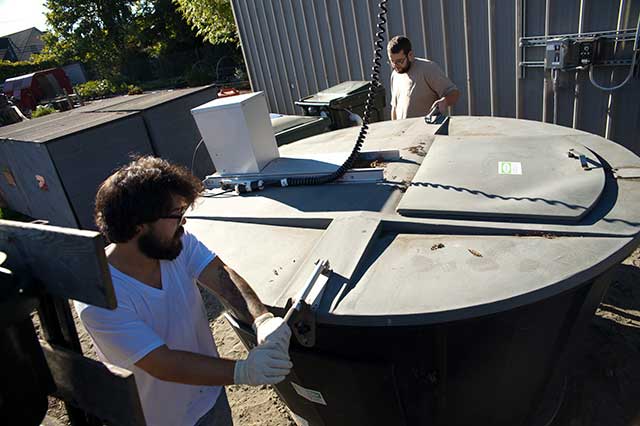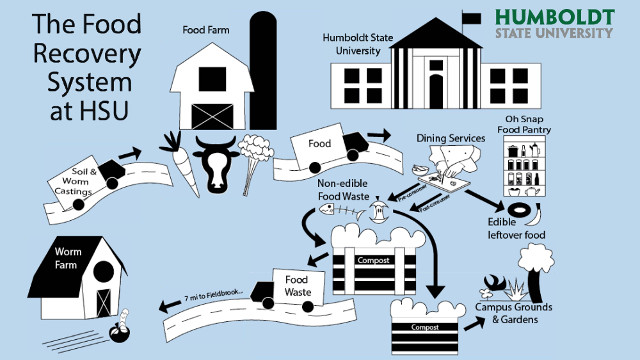
The U.S. Environmental Protection Agency’s National Sustainable Materials Management Program awarded the University a 2017 Food Recovery Challenge Certificate of Achievement. The recognition noted HSU reduced food waste sent to landfills by more than 66 percent from 2015 to 2016. And in 2016, food recovery activities reduced 52 metric tons of CO2 equivalent, which is comparable to seven homes worth of electricity use per year.
The California Higher Education Sustainability Conference (CHESC) named the University a 2017 Best Practice Award Winner in the field of Innovative Waste Reduction. According to Facilities Management, the campus diverted 1,254 pounds of food from the landfill from October 2016 through February 2017.

HSU has been involved in the Environmental Protection Agency’s Food Recovery Challenge since 2012. HSU’s activities include modifying food purchasing, production, and handling practices, reducing excessive portion size, managing collection of food waste for composting on and off campus; educating the campus about minimizing food waste; and creating an app that directs students to free leftovers from campus events.
“Food insecurity and food waste are interconnected issues,” says HSU Climate Action Analyst Morgan King. “This collaborative approach to food recovery helps feed people, reduce food costs, and prevent the very serious climate change impacts of landfilling food.”
CHESC noted HSU’s Oh SNAP!. Since 2014, the student-led program has reduced food insecurity on campus with a food pantry, farm stand, CalFresh application assistance, and more. About 13,000 students have accessed the Oh SNAP! program in the past two years.
Part of HSU’s commitment to sustainability and reducing its carbon footprint, the food recovery program is a coordinated effort between multiple campus partners, including Dining Services, Facilities Management and the Sustainability Office, The Waste Reduction & Resource Awareness Program (WRRAP), and Oh SNAP!